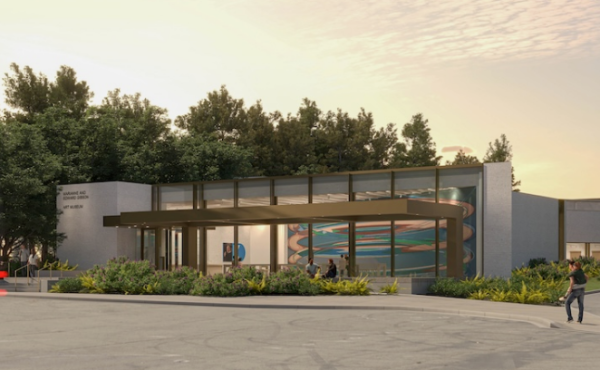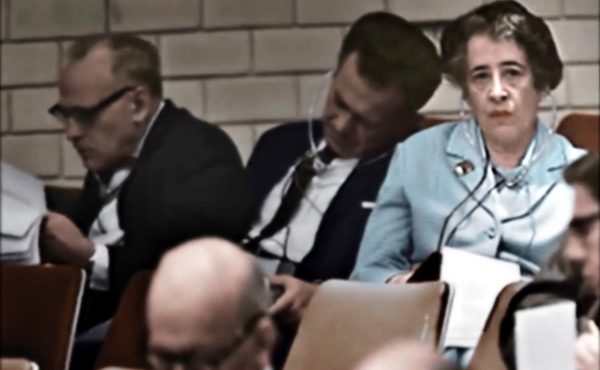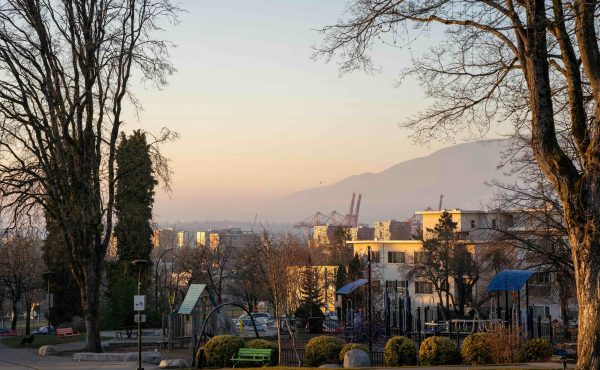As 2012 comes to a closes and our Spacing Vancouver contributors take a well deserved break, we would like to take the opportunity to look back of what we’ve covered over the last 12 months. Each day this week, we will be posting some of our favourite posts from the past year.
Gregor Robertson Interview
Originally posted on February 6, 2012

- Photo courtesy of Mischa Bartkow.

Mayor Gregor Robertson and the centre-left Vision Vancouver’s November 2011 election victory further cemented the upstart Elector Organization as a powerful political force in the city. The Coalition of Progressive Electors, from which the Vision party sprung, was shut out Vancouver’s ten council seats in the most recent vote, while the venerable Non-Partisan Association (NPA) won just two seats—an improvement from the one seat it garnered in 2008, but a far cry from elections past.
Spacing Vancouver Editor Erick Villagomez managed to catch up with Robertson at his office to discuss how Vision pulled off this reelection win, what it means for Vancouver, and how he and his party intend to fulfill the promises made during the campaign.
•••
 Spacing: We are fortunate to be in the office of recently re-elected Mayor Gregor Robertson today. Thank you, Gregor, for taking the time out of your busy schedule to chat with us.
Spacing: We are fortunate to be in the office of recently re-elected Mayor Gregor Robertson today. Thank you, Gregor, for taking the time out of your busy schedule to chat with us.
First and foremost, I’d like to congratulate you – and the rest of the Vision candidates – on your successful campaign. It must means a lot to you and your team; particularly given impressive political track record of NPA since being founded in the late 30’s. Do you think this is indicative of a greater changing mentality among the Vancouver citizens away from the centre-right stance associated with the NPA?
Robertson: It is definitely a shift to more progressive and pragmatic politics in Vancouver that deliver solid results on the ground on the priorities people care about. We focused our agenda on homelessness, affordable housing, and Greenest City goals and those clearly resonate—more so than standard campaign slogans and rhetoric. I think we are on a new track of people expecting more from government and a new team—a new party—in Vision that seizes that opportunity and delivers.
I’m thrilled to have an opportunity to continue the work. We set out goals that were far longer than one term of office, which I think is a benefit to the city to rally around and ensure we have consistency and competency in the team that’s on Council. It’s great to have an opportunity to carry on this work and feel that there is broad support throughout the city.
Spacing: Vision’s platform seems to resonate with voters under age 35. What’s the significance of engaging that demographic?
Robertson: Typically the younger generation is left out of political priorities. They are at best a strategic platform target. We focused on goals that will make sense for the long term and benefit the younger generation, to ensure that the city is focused on opportunities for our future—not just taking care of business day-to-day, which skews toward the older generation. We are setting stretch goals and we’re doing creative engagement using new tools and focusing on issues that matter to every generation and future generations. People are getting that and supporting it.
The key thing is getting the younger generation to vote in greater numbers. Even this election there was still a heavier vote among older voters. That’s a trend that needs to be addressed with more engagement and electoral reform, and there is more work to do on that. It’s good to see voter turnout go up (finally), but it’s still way lower than it should be—particularly with younger generations. The numbers aren’t anywhere near as high as they should be.
Spacing: Now, you and your council have a clear mandate with regards to the green values and ethics expressed in the “Greenest City” initiative. Given the outcome of the election, locals are equally supportive. Some have suggested your first term was focused on activities that were “in the margins,” so to speak, of these admirable goals.
It strikes many that follow and write about Vancouver urbanism excellence that you now have an opportunity to make some larger, more significant moves; such as the citywide plan laid out in A Convenience Truth: a Sustainable Vancouver by 2050 – a publication produced by the City and UBC’s schools of Architecture and Landscape Architecture and Community and Regional Planning. Will you now pursue some of these larger ideas consistent with the Greenest City initiative as a strategy to strengthen and enhance neighbourhoods outside of the downtown core?
Robertson: Definitely. We see the need for a new city plan that integrates transportation planning and addresses the many challenges facing us that weren’t accounted for decades ago, at the major points where the city was planned and built. Climate change is now a daunting reality, as is the cost of energy. Even water supply now factors in a coastal temperate rainforest. We have to make significant changes and plan those throughout the city and region to ensure we are rebuilding a city that is sustainable for the long term.
I think Vancouver has done better than most cities around the world in planning, development, transportation, and our ecological footprint. These we can now measure and contrast with other cities and strive to do better. We need to ensure we have input from across the city—the best thinking from our academic institution and business experts.
This input needs to be pulled together into a cohesive plan going forward with the new realities integrated. It’s a huge task, but A Convenience Truth is a breakthrough piece of work that sets that stage for it. We have to reimagine our public spaces, we have to focus development around transit and ensure we are taking it to the next level in terms of a city whose infrastructure is transformed to support long-term viability and resilience in a dense urban setting.
*
Other Spacing Vancouver and Spacing interviews:
- Downtown in Transition: An Interview with Sean Bailey
- Embracing the Future: An Interview with Kobus Mentz
- Inequality, Gender, Intersectionality, Gentrification, and the City: An interview with Leslie Kern
- Talking Landscape Architecture: An Interview with Marc Treib
- Architecture and Capital in the 21st Century: An Interview with Matthew Soules
- On Interior Urbanism: An Interview with Jeremy Senko
- From Chief Planner to “Urban Ronin”? Chatting about legacy, and the future, with Brent Toderian – Part 1
- From Chief Planner to “Urban Ronin”? Chatting about legacy, and the future, with Brent Toderian – Part 2
- Optimizing Social Connection: An Interview with Saif Khan
- On This Patch of Grass: An Interview with Matt Hern, Daisy Couture, Selena Couture, and Sadie Couture
- THE ARTFUL CITY: An Interview with Sean Martindale
- Vaudeville Vancouver: An Interview with Tom Carter
- Women in Design: An interview with Johanna Hurme of 5468796 Architecture
Living History: An Interview with Eve Lazarus - Where Happiness and Urban Design Intersect
- 2012 InReview: Gregor Robertson Interview
- Malcolm Bromley & Constance Barnes Interview – Part 1
- Malcolm Bromley & Constance Barnes Interview – Part 2
- Malcolm Bromley & Constance Barnes Interview – Part 3
- Malcolm Bromley & Constance Barnes Interview – Part 4
- From Chief Planner to “Urban Ronin”? Chatting about legacy, and the future, with Brent Toderian – Part 1
- From Chief Planner to “Urban Ronin”? Chatting about legacy, and the future, with Brent Toderian – Part 2



